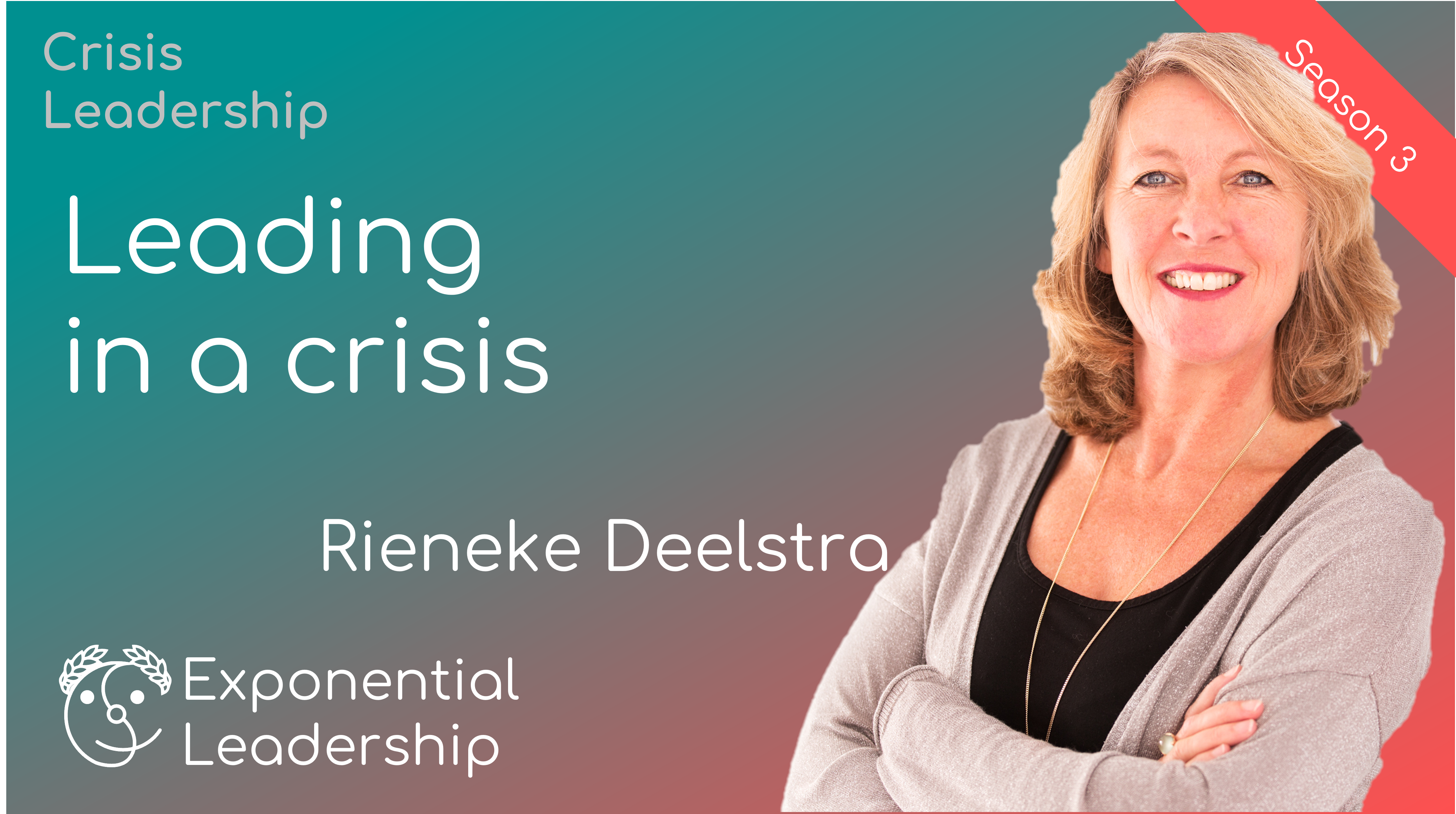Rieneke Deelstra is an experienced principal consultant, who has a history of working in management consulting and human resource management. Rieneke works at PA Consulting, an international innovation and transformation company, with the headquarters in London. PA believes in the power of ingenuity to build a positive human future in a technology-driven world.
Rieneke is in the innovation and transformation sector and is passionate about the challenges of leaders; specifically, how to find your anchors and maintain your own wellbeing and how to help your employees to fit with the required change and transformation. Rieneke recognises the necessary shifts in the mental paradigm that change asks for and what it takes to cope with it as a leader. The impact on leaders is often big; how to think, how to adjust yourself to innovation and transformation and how to realise new ways of working and find your own place as a leader.
Shift of focus during a crisis, from control to trust
When leaders are faced with a crisis there is a period of insecurity they experience because of lack of control and lack of understanding during the first period of the crisis. As leaders we want to know as much about a situation as possible to make the most well-informed decisions for our clients and employees, yet we experience a period where we know less then we want.
Depending on the context of the crisis, the type of control in the crisis will vary from situation to situation. Rieneke uses the COVID 19 pandemic and the shift to remote working as an example and says, “With the COVID crisis and the lockdowns, there was directly a different control mechanism necessary: based on trust.”
Being a leader – not only during a time of crisis – requires a view on your organisation where you acknowledge the core of your business by looking at the employees in contact with the clients. They are handling the customer experience and the production. So, it is key for the leader to trust the professionalism and expertise of their employees. It is an audacity to think we can control every aspect in work of the employees, in normal life and during a crisis, but we can create the means and environment for our employees to work well. To achieve these means we first need to have confidence in ourselves and then in our employees.
The role of cognitive empathy in leadership
At times we are not in touch with ourselves, with what we think, feel or experience physically. Being out of touch, can result in us being disconnected and ‘checked out’ with ourselves and the people around us. Rieneke explains that “if you’re not aware of what’s happening in yourself, your thinking, emotions and physical signs in connection to other people, if you’re not listening, if you can’t read nonverbal signals, if you don’t sense the atmosphere in the room, you miss a lot. And by missing all this, if you only talk from your head, the connection with others is empty.”
Being able to understand your employees, we first need to know ourselves thoroughly and second being able to understand various non-verbal signals, read body language, without necessarily speaking. Employees do not always directly speak about the issues they are facing, especially in a team setting. So as a leader we need to try to figure out and understand based on how they speak with us, indirectly.
To know yourself as a leader is to understand your own rational and irrational reactions in a situation. Our reactions are based on the interconnected pathways between our body and neurons. This is a complex construction, built overtime. Gradually we have lost touch with our emotions and the reactions that are evoked by them. Being able to investigate and understand this, takes time. But is greatly beneficial in the long term for yourself and your environment.
Sharing your learnings with your employees will paradoxically strengthen the connection, although leaders can feel vulnerable. But instead of becoming vulnerable, they invest in trust: employees recognise and sense the authenticity.
Loneliness in leadership
Create a strong connection with your employees is an important aspect of leadership and yet, despite being able to form a connection, leaders often experience loneliness. Rieneke explains that for leaders “it is not always the best solution to share directly your first thoughts and feelings about a situation with your employee(s). You need a buddy or coach to share your experiences and thoughts, to understand what is happening. When you lack someone to share the unclarity or insecurity of a situation, it can be very lonely.”
Often leaders take the responsibility of creating a safe working environment for our employees very seriously and with this the unrealistic expectation of putting the employees’ emotions above their own.
So, leaders must organise ‘sharing’ themselves, as a hygiene factor to stay healthy. Within the organisation or by sharing thoughts and emotions with a coach. Sharing diminish loneliness, helps to understand the situation, and learn why we react in a specific situation in the way we did. By this cognitive empathy is evolving, an important skill to enable change and handling crises. And as a result of this, the confidence in leadership by ourselves and the employees is growing.



